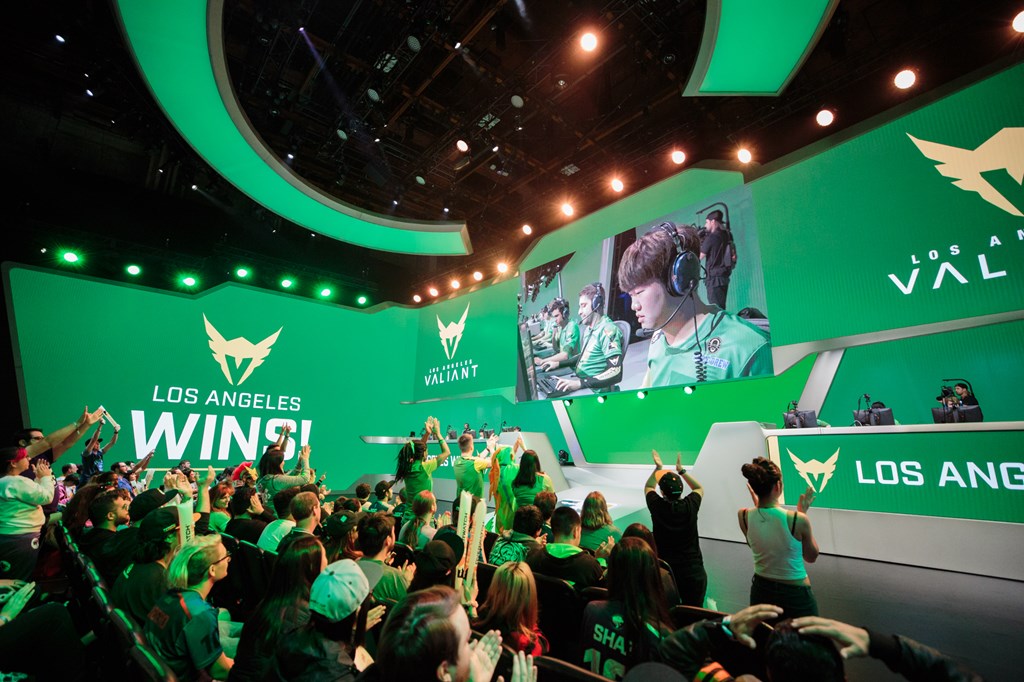Western esports reached a turning point in the fall of 2013 when Riot Games’ League of Legends World Championship was held at the Staples Center in downtown Los Angeles. The next summer, Dota 2’s premier tournament, The International, moved out of the cozy Benaroya Hall into Seattle’s KeyArena. Since then, the scene has taken off, with both viewership and sponsorship numbers skyrocketing over the last five years.
That growth has led to tremendous investment in players, infrastructure, media, and other services. That investment requires capital, which has attracted all sorts of investors and financial partners. The free flow of capital is great for business, but can also bring risks, as financial crisis throughout history have made evident.
So what amount of capital is healthy for esports? And what relationships should teams, startups, and investors be looking for? We took a look at the positives and negatives of external financing to find out.
A word of warning

By trade, I’m a finance professional with a background in investment banking. I’ve worked with and for people who have gone on to become early-stage investors—in other words, the type of people who are investing in esports right now.
Several years ago, I attended a keynote given by Gavin Christensen, a partner at a local venture capital shop. Afterwards, I had the opportunity to speak with him one-on-one. I asked him what he thought about finding the right investor from the perspective of a startup founder. His first word in response? “Don’t.”
What he meant was that founders should only turn to outside equity investment as a last resort.
“Avoid it if you can,” Christensen said. “And if you get it, make sure you really need it and have a use for it that can’t be accomplished otherwise.”
That advice applies to esports. By being disciplined and honest with themselves among a sea of increasing valuation, founders can avoid bad partnership and unrealistic expectations. After all, the more a company is valued at, the greater the pressure to deliver.
That single word, “don’t,” is a valuable warning to those on both the buy- and sell-side of esports investment. More money always sounds great, but along with tremendous benefits come huge risks.
Here are some things to look out for when examining financing partnerships.
The risks: Too much, too fast

The risks that capital can bring to an industry don’t just apply to those investing and those raising money. As the mortgage crisis proved, too much money raised too quickly can subsume entire industries and even entire global economies.
Some of the risks that capital brings to an industry include:
Inflated valuations
Early-stage investors often fund companies with limited or no profits, and sometimes, no revenue. So how do they know how much to pay? One common method is precedent transaction analysis: You look at a recent financing in the same sector and use the same valuation.
It’s easy to tell how this could go wrong. Get the valuation for one startup wrong, and all subsequent financings in the space could be thrown off. In this way, venture investment in an emerging industry can obscure valuations. We know that an NA LCS team is worth at least $10 million because investors were willing to pay that much to obtain a spot. But even that amount is speculative, and it may be years before we figure out how much these teams are really worth.
A primary risk of frothy valuations is that investors afraid of missing out will jump at any opportunity to get in. And once the best companies are snatched up, even poor concepts can receive funding. And when these ventures fail, there’s risk of a chain reaction across the entire sector.
To combat this, founders need a clear idea of how much capital they need, what they’ll use it for, and resist the urge to raise too much. Raising capital for well-defined use is good—but do it to inflate your own ego and problems will likely arise.
Higher costs
Receiving a capital injection can also put pressure on the company. Investors eventually want to see revenues and profit that support their valuation, which may lead to founders taking shortcuts in how they build their business.
Too much cash can also raise operational costs in an unsustainable way. Sometimes, especially when multiple investors enter the same space, companies can find themselves competing with similarly well-funded rivals for talent. The inflation of player salaries in esports over the last few years is a great example of that. Spurred on by Immortals, who joined the NA LCS with a substantial chunk of external capital in 2016 and paid high prices for star players, salaries across the LCS have risen substantially.
Higher costs aren’t an issue for strong operators. But they can sink companies that don’t invest as carefully or have a faster path to profitability. Again, just one bad apple can spoil the entire bunch.
Unrealistic expectations
Finally, receiving investment can put startups on a clock. Ideally, the founders should partner with investors with similar goals and timelines. But in reality, not everything goes smoothly after an investment round closes.
Delays happen. Costs go up more than expected. Competition can come out of nowhere. All these things can put pressure on the relationship between the company and its financiers.
When things get hot, the expectations companies and investors had at closing can go out the window. And it’s not always the company’s fault—sometimes when things heat up, inexperienced investors can be drawn to the space. When the mortgage crisis hit, even the banks were caught with their pants down.
But after considering all those risks, there are good reasons that venture capital has created a tremendous amount of wealth. It just needs to be done the right way.
The benefits: A match made in heaven

Nearly every big company in Silicon Valley received financing at an early stage. Sometimes, having a good idea isn’t enough—you also need to execute better and faster than the competition, and a big financing round can give startups just the kick they need. So what are the benefits of early capital, and how can startups and investors in esports avoid common pitfalls?
Accelerated growth
Every startup wants to grow. More money can accelerate that by helping startups increase headcount, pursue marketing opportunities, and acquire more customers. First movers in an industry can enjoy tremendous advantages, from lower costs to the creation of entry barriers. Even though several endemic teams didn’t survive the NA LCS franchising process, certain ones like TSM and CLG, who were there at the beginning, did get in.
Sometimes, the turbulence that growth creates can also be good. Fast-moving markets weed out weak participants quickly. And while valuations might seem frothy now, in a few years, it’s possible the numbers get even crazier. In that sense, it’s important to make mistakes as early as possible when the numbers are smaller.
It takes the right blend of aggressiveness and patience to succeed in any new industry.
Outside expertise
Outside investors can also provide management and strategic expertise that founders may lack. The most common example of this are the various startup accelerators that provide both training and capital. While not all investors take a hands-on approach, smart companies will seek partnerships that provide the level of support they need.
A lot of founders have a great idea but aren’t sure how to execute and lack the experience to operate a company. Getting management support and other expertise can help them execute on their vision.
Sometimes, that support won’t even come from the investors. They might bring in a marketing guru, team manager, or software engineer that the founders wouldn’t have connected with otherwise. The best growth investments aren’t just about the money.
Strategic partnerships
The last thing to keep in mind is that external capital doesn’t always have to come from dedicated finance or venture capital shops. Immortals raised money from companies that have experience in live events and digital media, areas that dovetail nicely with esports.
The best example of this is to look to esports in South Korea. The best Korean organizations are sponsored by huge corporations for which esports teams are an extension of their brand identity.
Smart founders in the esports space will look to these types of strategic partnerships to help their teams grow. These types of investments also tend to provide the longest runways, which helps companies take a longer view.
Investments in esports don’t have to just be value plays where the company is sold for a huge return years later. In fact, as esports continues to mature, there should be an organic transition from venture capital to more traditional forms of financing. In some cases, that evolution might already have happened.
The growth esports has experienced over the last few years is exhilarating for all participants, from fans to owners to investors. But for that growth to continue, the people and companies building the industry have to be disciplined in the way they operate and raise money. Unlike the results of a league or a tournament, this doesn’t have to be a winner-take-all process. It won’t be a smooth ride, but if owners and investors are careful and honest, everyone can benefit from the success of esports.













Published: Jul 1, 2018 01:55 pm